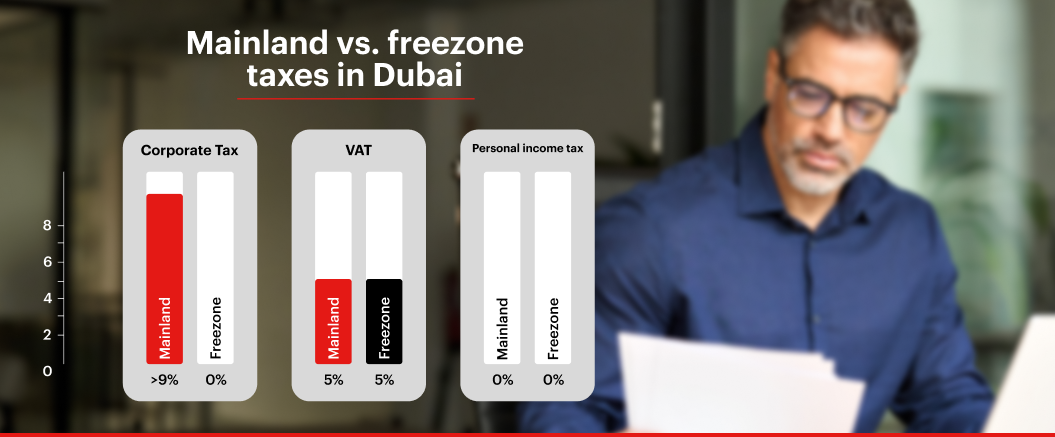Dubai tax free policies have become a major attraction for entrepreneurs looking to set up businesses in one of the world’s most dynamic cities. As a global hub for trade, finance and innovation, Dubai’s tax-free policies make it an appealing destination for startups, SMEs and multinational corporations alike, providing an opportunity to maximise profits and reinvest savings into business growth. With the added advantage of world-class infrastructure, strategic location and a supportive business ecosystem, the city has positioned itself as a top choice for entrepreneurs seeking to expand their reach and capitalise on a tax-friendly environment.
In this blog post, we will provide a comprehensive breakdown of the tax structures in Dubai, including the corporate tax in Dubai free zones. We will also compare Dubai’s tax free system with those of other leading business capitals and highlight the advantages of operating in a low or no-tax environment. Whether you’re an established entrepreneur or just starting out, understanding these benefits is crucial to making the most of Dubai’s favourable tax climate.
Dubai tax free policies
Dubai is a tax free country, and is widely recognised for its business-friendly tax regime, offering significant advantages to businesses, entrepreneurs and investors. This favourable environment makes it an increasingly attractive destination for those seeking to expand and grow their operations.
What does tax-free Dubai offer? Let’s take a closer look:
|
Capital Gains Tax |
0% |
|
Corporation Tax |
9% (if applicable) |
|
Personal Income Tax |
0% |
|
Value Added Tax (VAT). |
5% |
There is no Capital Gains Tax, meaning profits from the sale of assets are entirely tax-free in Dubai. This makes the city an appealing destination for investors aiming to maximise their returns.
Additionally, Dubai does not impose Personal Income Tax, allowing individuals to keep 100% of their earnings, significantly lowering the tax burden compared to countries like the UK, Germany and Spain.
For businesses, Dubai has introduced a Corporation Tax rate of 9%, applicable only to companies with profits exceeding AED 375,000. Companies operating in free zones may enjoy further tax exemptions or incentives.
Dubai also boasts a Value Added Tax (VAT) rate of just 5%, one of the lowest globally. This competitive rate benefits businesses, particularly those in trade and service industries, by supporting more attractive pricing structures.
The key takeaway? The low-tax or tax-free policies in Dubai make it a highly attractive destination for businesses and individuals seeking to minimise their tax liabilities.
Corporate tax in Dubai free zone
Corporate tax in Dubai’s free zones is one of the key reasons why entrepreneurs flock to the city to establish their businesses. Free zone companies enjoy significant tax advantages, including exemptions from corporate income tax for up to 50 years, depending on the specific free zone.
The tax exemptions in free zones remain a major draw, offering entrepreneurs the chance to minimise their tax liabilities while benefiting from world-class facilities, ease of doing business and access to international markets.

Tax free: Dubai vs. other major business hubs
So, how do Dubai’s tax-free policies stack up against other major business capitals around the world? When it comes to Corporate Tax, Dubai’s rate stands at 9% for companies with profits exceeding AED 375,000 and is 0% in free zones. In comparison, London imposes a Corporate Tax rate of 25%, Berlin’s rate is 15%, and Madrid’s can rise to 25%.
The contrast becomes even more striking when considering personal income tax. Dubai’s tax-free environment is a stark difference to London where personal income tax can reach up to 40%, Berlin, where it can go up to 45%, and Madrid, where it can climb as high as 47%. These significant differences make Dubai an especially attractive destination for both business owners seeking to maximise their income and investment opportunities.

Advantages of tax free Dubai
Dubai’s tax-free policies are beneficial for business owners for several reasons, all of which help create a more favourable environment for growth, investment and long-term success. Here are some of the key benefits:
- Higher Retained Earnings: With lower taxes, business owners can retain more of their profits. This means they can reinvest a larger portion of their income back into the business, whether it’s through expanding operations, hiring more employees, improving technology or investing in marketing. Retaining more earnings accelerates business growth and helps businesses become more competitive.
- Increased Cash Flow: Dubai’s tax-free environment directly improves cash flow, allowing business owners to have more working capital. A healthy cash flow is essential for covering day-to-day operating expenses, managing cash reserves and navigating economic challenges. With more funds available, business owners can be more flexible and responsive to opportunities or challenges.
- Incentive for Investment: Low or no tax rates can make a business more attractive to investors, as they can expect higher returns on their investment due to the lower tax burden. Additionally, business owners themselves are more likely to reinvest profits into the business if they aren’t burdened by high taxes. This can lead to the growth of the business and the creation of jobs.
- More Competitive Advantage: Businesses paying low or no tax can potentially offer better pricing or higher-quality products and services, as they have more resources to allocate toward these areas. Businesses that face high taxes might need to pass those costs onto customers, which could make them less competitive.
- Attracting Talent: A business with more available capital – thanks to Dubai’s tax-free environment – can attract and retain top talent. Higher salaries, better employee benefits and opportunities for growth all become easier to offer when a business has the financial flexibility to do so. Plus, lower taxes make it easier for employees to keep more of their income, which could make the business more attractive to potential hires.
- Increased Innovation: Businesses that pay lower taxes have more funds available to invest in innovation, research and development (R&D), and the launch of new products or services. This is crucial in maintaining a competitive edge, especially in rapidly changing industries like technology or manufacturing.
- Business Stability: When taxes are low, the financial pressures on a business are reduced, which can lead to greater stability. Business owners can weather economic downturns or unexpected challenges more easily when they don’t have the additional burden of high taxes. In times of uncertainty, the ability to manage finances effectively can be a key factor in surviving and thriving.
- Simplification and Efficiency: In some cases, lower taxes are also associated with simpler tax codes and fewer bureaucratic hurdles. A simplified tax structure means less time and money spent on compliance, legal fees, and accounting. This allows business owners to focus on what really matters: growing and running their businesses.
- Better Long-Term Planning: Lower taxes make it easier to engage in long-term financial planning. Business owners can be more confident in their financial projections and can make strategic decisions with more certainty about the financial outcomes. This includes deciding whether to expand, acquire other companies or explore new markets.
- Potential for Wealth Creation: With lower taxes, entrepreneurs are more likely to build wealth over time, both for themselves and for their investors. Wealth-building through profits, asset appreciation and business sales becomes more achievable when tax burdens are lower. This is particularly important if business owners intend to sell their businesses or pass them on to future generations.
- Global Competitiveness: In an increasingly globalised world, businesses are no longer just competing within their own countries. Lower taxes can help businesses remain competitive on a global scale, making them more attractive to international investors and clients. It allows companies to price their products or services competitively, while also enjoying a higher profit margin.
Dubai’s tax-free policies create a more favourable financial environment for business owners by increasing profitability, improving cash flow and reducing financial pressures. These benefits allow businesses to grow faster, reinvest in innovation, attract top talent and stay competitive.
Take advantage of Dubai’s tax-free policies
If you are an ambitious entrepreneur looking to harness all the advantages that Dubai’s tax-free environment has to offer, turn to the experts at Europe Emirates Group to handle your business setup. Our friendly, professional and efficient team will take care of the entire process, ensuring a smooth and hassle-free experience so you can focus on the strategic growth of your business.
Set up a meeting with our specialists today through this link and take the first step towards establishing your business in Dubai.




